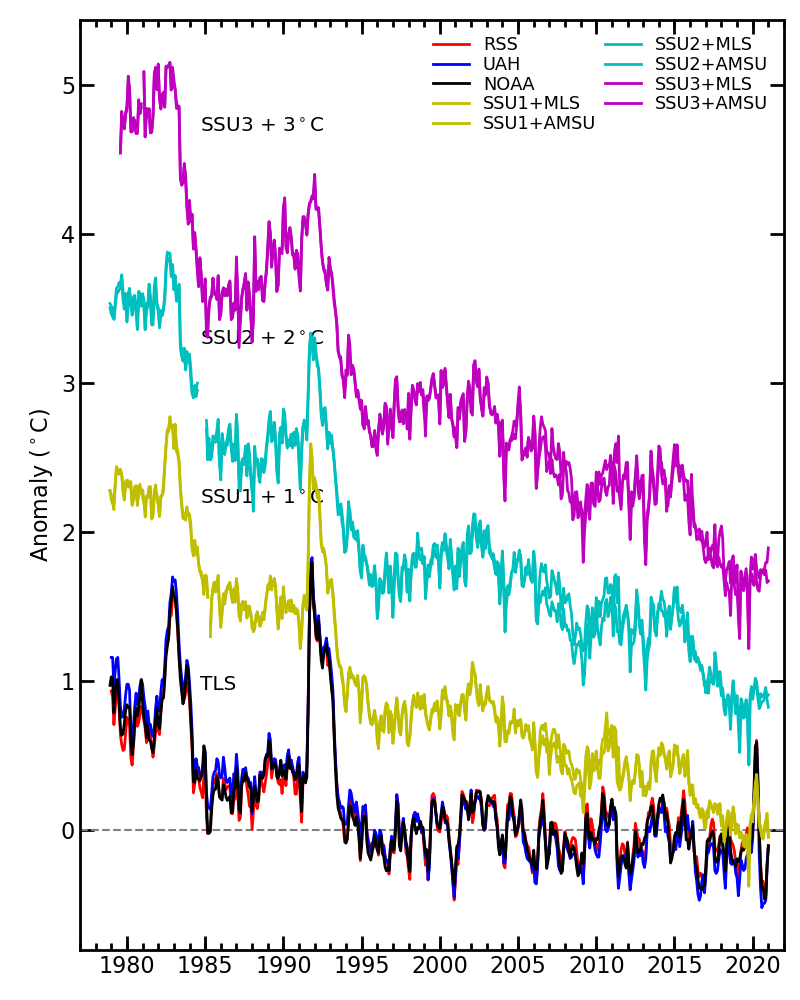BAMS releases State of the Climate report for 2020
ACOM contributes chapter on the stratosphere
From the Bulletin of the AMS:
State of the Climate
An international, peer-reviewed publication released each summer, the State of the Climate is the authoritative annual summary of the global climate published as a supplement to the Bulletin of the American Meteorological Society.
The report, compiled by NOAA’s National Centers for Environmental Information, is based on contributions from scientists from around the world. It provides a detailed update on global climate indicators, notable weather events, and other data collected by environmental monitoring stations and instruments located on land, water, ice, and in space.
ACOM scientists contributed to this report, specifically in Chapter 2. Global Climate, Section 5) Stratospheric temperature and winds. Bill Randel supplies the figure below.

Figure 2.9 (Bill Randel). Monthly global stratospheric temperature anomalies from the lower to upper stratosphere (bottom to top), showing long-term cooling related to increasing greenhouse gases and ozone depletion, along with effects of episodic volcanic eruptions and the 11-year solar cycle. Middle and upper stratosphere data are from the Stratospheric Sounding Unit (SSU), representing thick-layer averages centered near 30, 38 and 45 km (SSU1, SSU2 and SSU3, respectively). Lower stratosphere temperatures (TLS) are ~13-22 layer averages from satellite microwave measurements. Each time series has been normalized to zero for the period 1995-2005, and curves are offset for clarity.
We encourage readers to view the State of the Climate report, page S37, for the full section.
